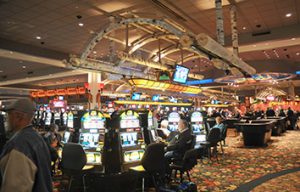Bill aimed at boosting Indiana casinos clears Senate
A major overhaul of Indiana casino regulations and taxes has cleared the state Senate amid arguments from its supporters that the casinos need help against growing competition from surrounding states.

